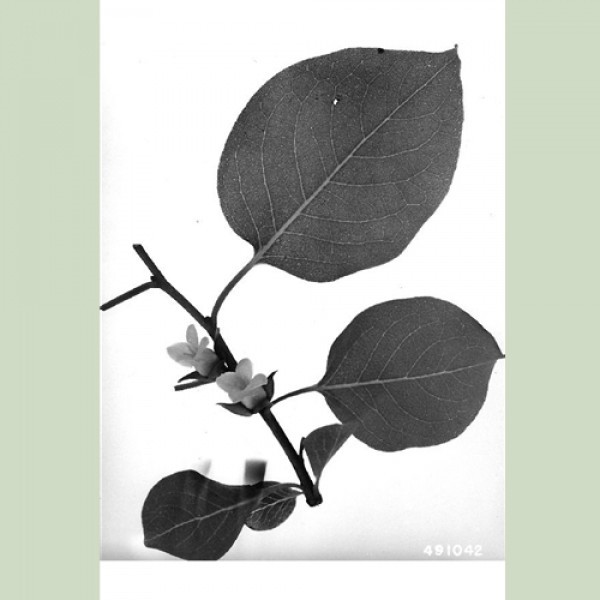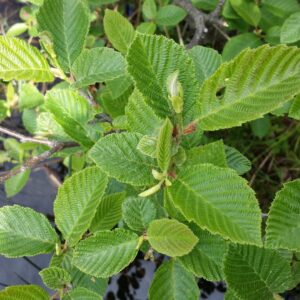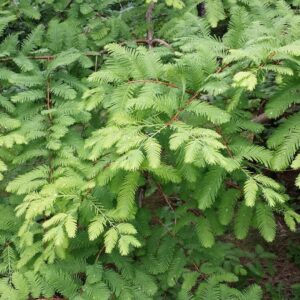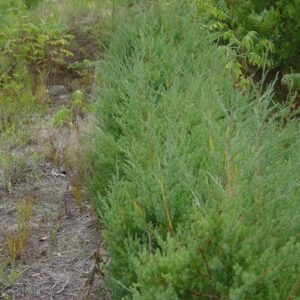Description
Latin Name: Diospyros virginiana
Common Names: Common Persimmon, American Persimmon
Zones: 4-9
Mature Height: This fast-growing tree typically reaches heights of 35 to 60 feet (10 to 18 meters) with an oval to round crown (Missouri Botanical Garden).
Soil / Climate: Native to eastern North America, the persimmon is adaptable to various climates. It thrives in moist, well-drained soil and prefers full sun to partial shade but can also grow in sandy, rocky, or infertile soils and tolerate dry conditions (Missouri Botanical Garden).
Notes: The tree produces root suckers. The leaves are ovate or elliptical, measuring 2 to 6 inches (5-15 cm) long, with a shiny dark green top and lighter underside. In fall, the leaves turn greenish-yellow or, occasionally, red. Young trees have light gray-brown bark with fissures, which darkens and becomes blocky as the tree matures (Virginia Tech). For fruit production, a male tree is required to pollinate a female tree. In late spring, aromatic greenish-yellow flowers bloom; male flowers are clustered, while female flowers are solitary. The fruits, or persimmons, are edible, growing to about 1-2 inches (2-5 cm) wide, maturing to a reddish-orange color in the fall, and can remain on the tree into winter. The sweet fruit is used in syrups, pies, and other desserts, but is too soft for shipping when ripe. The leaves can also be used to make tea (Missouri Botanical Garden). Persimmon wood, though limited in use, is employed in crafting items such as wooden flutes and spoons. The tree is among the last to leaf out in spring and flowers after the leaves have formed, minimizing the risk of blossom frost. Its fast growth makes it ideal for habitat restoration, and its fruit is traditionally used in a special steamed pudding in the Midwest.
Problems: The persimmon tree generally faces few disease or pest issues, with the occasional occurrence of leaf spot being the main concern (Missouri Botanical Garden).
Wildlife: The persimmon provides nutritious food in the fall for a variety of wildlife, including deer, quail, turkey, grouse, pheasant, opossum, and raccoons.
Cold Stream Farm supplies Persimmon trees which are grown as bare root seedlings and transplants and sold both wholesale and retail with no minimum order.
Sources:
Additional information on Diospyros virginiana can be found on the link: USDA / NRCS PLANTS Database.







Reviews
There are no reviews yet.